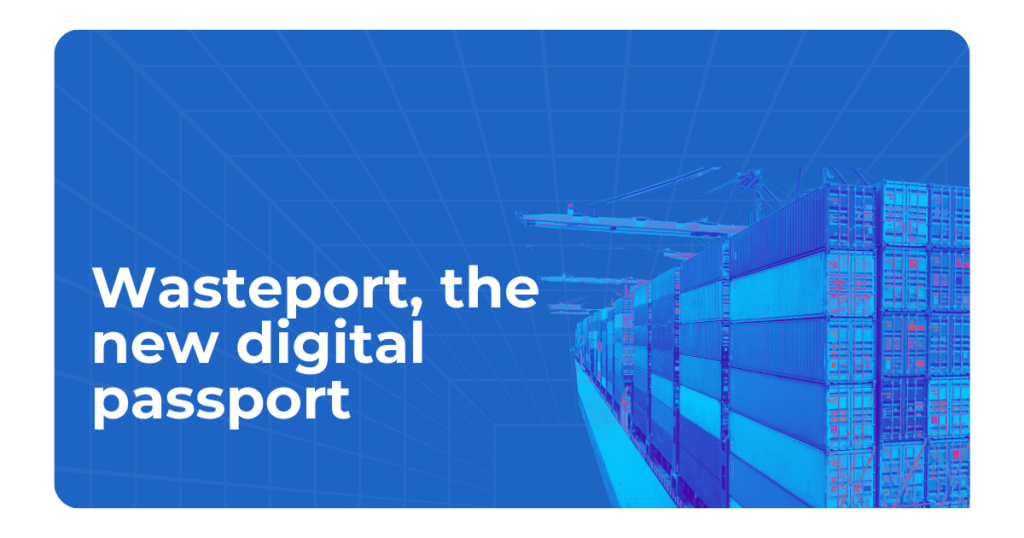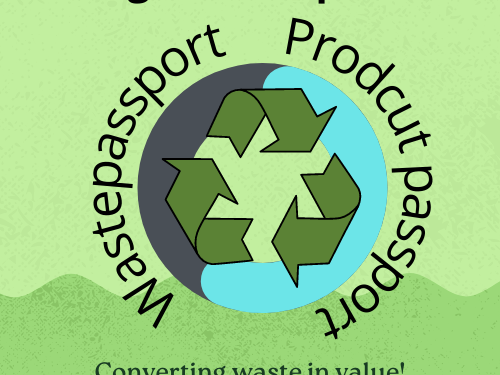

Wasteport, the new digital passport for the circular economy.
The digital passport It is a fairly new concept in which many companies are already beginning to work. It is expected that little by little it will be extended to a large part of the products we buy. The digital passport allows information on the process of creating a product to be obtained, which gives consumers security and awareness of good manufacturing practices.. In addition, the data shown in these passports allows us to understand the value of the product that is being purchased. For example, in a digital passport of a food product, data on traceability, the way in which it has been grown, the label or other more brand characteristics such as the values of the company are included.
It is also proposed by the European Union for batteries. At the end of 2020, the creation of a “ecological passport” in order to reduce its carbon footprint. In this passport, it will be possible to know the origin of the battery, what useful life it has had, what its carbon footprint is and in what quantity its elements are recycled. The citizen and any buyer of any battery (not just cars) will be able to know all this data in order to make a responsible choice.
Origin of recycled materials
This information, so valuable for the sustainable growth of consumption, begins to be collected at the moment a product is manufactured, but what before...? How do we certify the origin of the material that is being used to manufacture a product? How can we attest that it has been made with recycled materials?
Recyclable waste, which will later be transformed to become a new raw material, can also have a product passport.When treated, the waste ceases to be waste and is transformed into a new product, whose value and origin can be traced with a new concept of digital passport, the wastepassport.

Wasteport, Blue Room Innovation technology
The multiple advantages of blockchain technology make it ideal for the creation of traceability projects that include multiple actors. Therefore, in the framework of the project PortNet., Blue Room Innovation has created a wastepassport to be able to trace the origin of the waste, in this case starting with that of the port environment.
Why did we want to start here? Port waste, just like household waste, can and should be recycled and it is important to establish agile and incentivizing ecosystems that encourage separation and recycling when ships arrive at port and discourage illegal dumping into the sea.
In this context, the wastepassport begins its trace at the moment in which the waste is unloaded from ships, boats and cruise ships and accompanies the waste during all the procedures that are carried out to declare the discharge at the port. Subsequently, it ends by indicating the transformation and/or separation plant in which it has been treated and this information is assigned to the new raw material obtained. Thanks to this traceability and waste passport, the end buyer can certify that what is purchased comes from recycled material and understand the value of the purchased product.
Thanks to the support of ACCIÓ and with the collaboration and support of the Port of Palma, Adalmo and accelerators like DigiCirc chain Galatea, we will be able to observe one of the first cases of wastepassport in Europe. If you are part of the waste transformation ecosystem (port or not) or you want to be able to acquire certified recycled materials with blockchain technology and wastepassport, write us and surely we can find ways of collaboration!

Find us!
Cristòfol Grober 4, local 35
17001 - Girona
Gran Via Carles III, 98 planta 10
08028 - Barcelona

Copyright © 2023 Blue Room Innovation Privacy Policy - Legal Warning -